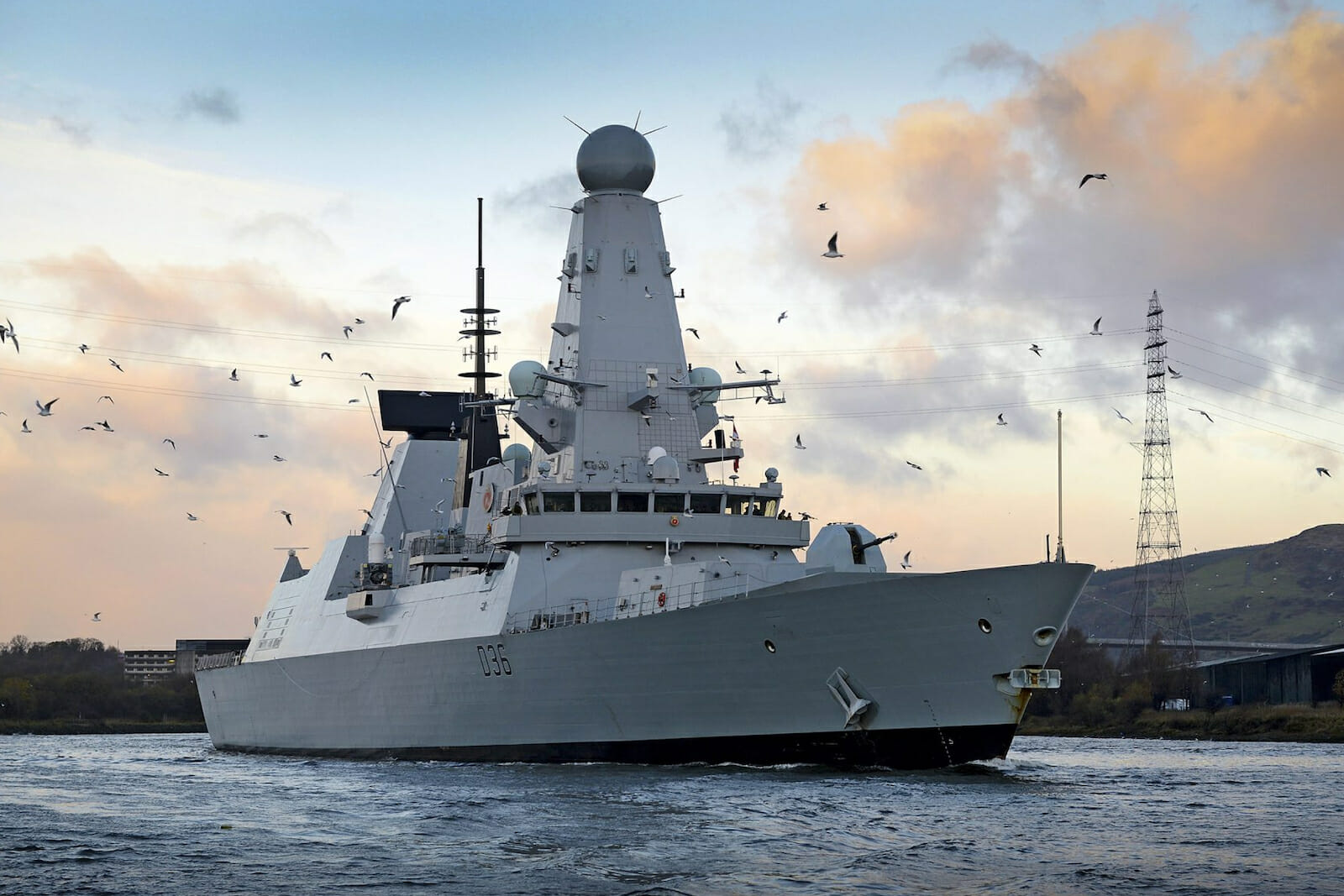
The Skirmish in the Black Sea that Wasn’t
Russia is claiming to have chased off a British warship in the Black Sea with warning shots and bombing runs. The claims are perhaps no surprise – but neither is the fact that few of those claims appear to be true.
The HMS Defender, a British Royal Navy Type 45 destroyer, entered the Black Sea knowing it would be an eventful visit. Traveling between friendly ports in Ukraine and Georgia, the vessels passing by the tense region of Russian-occupied Crimea was bound to risk raising tensions.
Moscow often claims that foreign ships and aircraft in the vicinity of Crimea will change course and then retreat when challenged by Russian forces. In most cases, these claims are fiction. Russia makes these claims because it needs to tell the Russian people two stories – that it is under threat from a dangerous and aggressive West, and that Russia itself is strong and more than capable of protecting itself by seeing off any unwelcome intruders.
After years of deceit and disinformation, Russian versions of any given incident are automatically treated as suspect. However, it is important that the UK provides clear and evidenced support to any claims it makes relating to Russian acts.
Carrying out aggressive manoeuvres close to Russian-held territory, such as in the Black Sea and the other seas off Western Russia, risks a dangerous provocation. Ensuring that the UK’s own vessels and ships are not placed in the position of being the provocateurs is as important as ensuring that reports of Russian weapons power and reach are exaggerated for the benefit of the media and public.
Conflicting accounts inevitable
Inevitably, it follows that after any encounter of this kind with Russia, conflicting versions of events will arise. Experts have pointed out that if Russia were to have fired warning shots towards the HMS Defender, it would have released clear video footage of the encounter. Whilst not denying that gunfire had occurred in the area, the UK’s Ministry of Defence (MoD) stated that this had been part of a pre-planned Russian naval exercise, some distance from the location of the HMS Defender. Russia also alleges that it dropped bombs in the path of the vessel – a claim the UK government “does not recognize.”
Freedom of navigation is a fundamental right exercised by all nations. It remains essential that all conduct is safe, professional and in line with international law. https://t.co/IMBIzWUUIt
— Ministry of Defence 🇬🇧 (@DefenceHQ) June 30, 2021
The MoD is habitually secretive about hostile actions undertaken by Russia against the UK, whether it be at sea, in the air, or in the realm of cyber and electromagnetic warfare. On this occasion, though, journalists had been given a front-row seat and allowed to join the HMS Defender as it performed this potentially sensitive mission.
In stark contrast to the bland official statements, the breathless first-hand reports by a BBC correspondent onboard paint a much more vivid picture. Close passes by Russian aircraft, radio warnings that the ship would be fired on, and the harassment of the HMS Defender by Russian coastguard, part of the Russian FSB intelligence agency, all suggest that something rather more important had occurred.
Like most of the West, the credibility of the UK’s armed forces relies on honest and truthful reporting of their activities. Pretending that nothing happened when it plainly had, is a habit that the Ministry of Defence should leave to the Russians.
Innocent passage
Russia claimed Crimea as its own in 2014, seizing the peninsula from Ukraine. Russia claims the move was invited and legal, while Western countries refute that claim. Therefore, whilst the UK claims that the HMS defender was making innocent passage through Ukrainian waters, it is feasible to suggest that the UK may have deliberately sent the warship through waters off Crimea specifically to make the point that Russia’s claim to the region is not agreed. Russia, of course, claims the ship was intruding on its own territory.
The “innocent passage” phrase refers to the 1982 Law of the Sea Convention, which allows the right of foreign ships to pass through another state’s territorial waters, no matter which nations are involved. Both the UK and Russia are signatories of this UN convention. The phrase has been heard a lot since news of the incident hit the media, and will no doubt continue to be heard in the coming weeks until this matter is either resolved or forgotten.
UK military forces would have been well aware that the annual Moscow Security Conference, a high-profile gathering of military and intelligence bigwigs from Russia and its allies, would be occurring in the Black Sea. Sending the warship to pass through the waters nearby, legal or not, can only be seen as provocative. This manner of interaction was a common occurrence during the Cold War, where Russia would spin tales of an implacably hostile West as a major theme and hold Russian responses up as resolute and appropriate.
Provocative but non-aggressive acts are the same driving principle the West insisted on – and Moscow resisted – during the Cold War, which led to at least one occasion of Soviet warships ramming American vessels that had carried out manoeuvres similar to the HMS Defender.
Both sides will spin their rhetoric regarding this Black Sea incident, which will give them plenty to talk about – but the chances of it being an honest conversation are slim.

